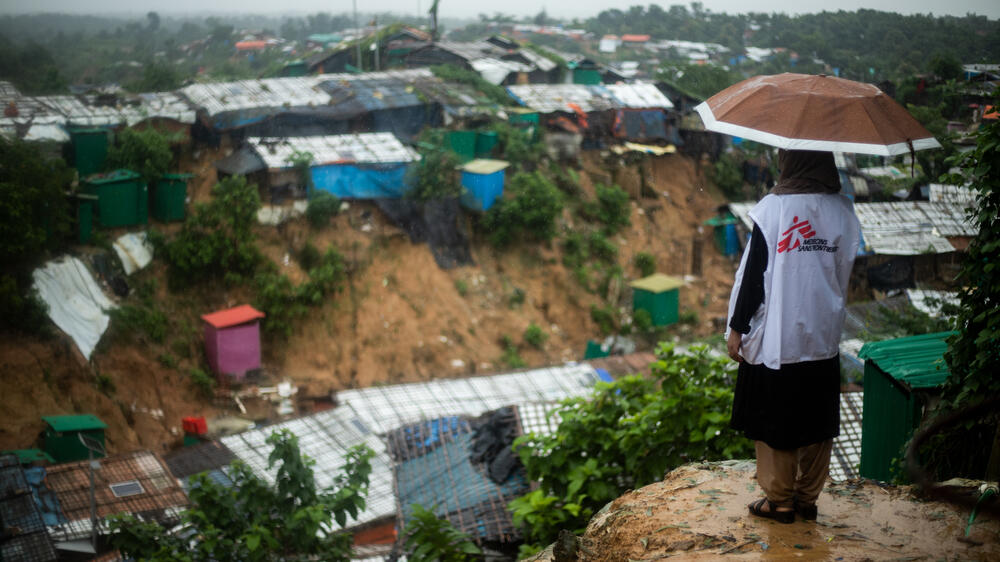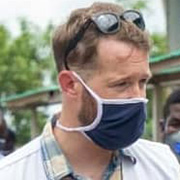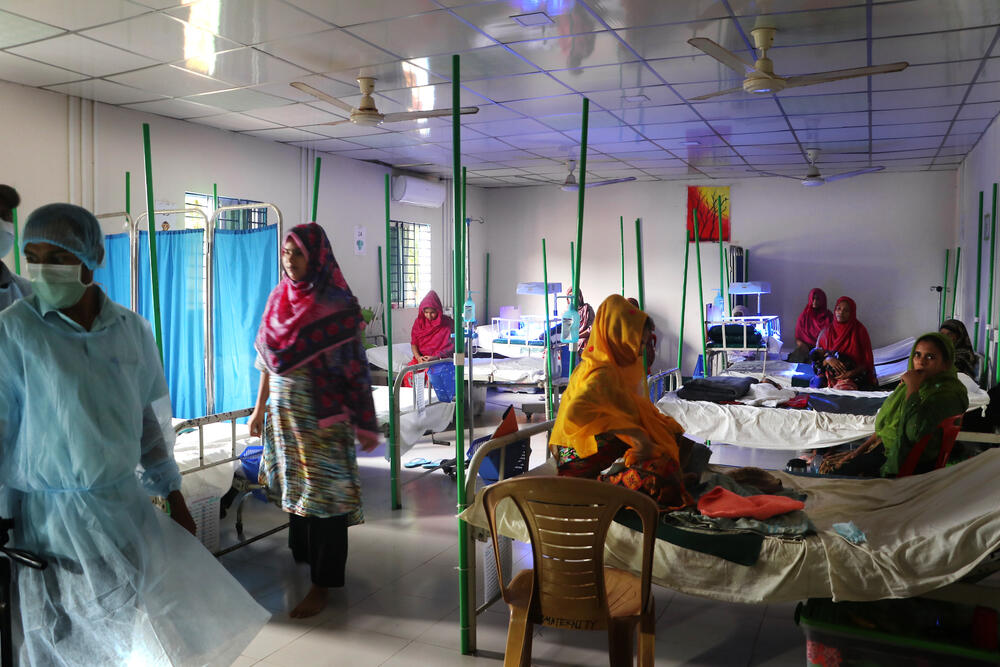Rohingya crisis: “Refugees face an uncertain future on Bhasan Char island"
Years after the Rohingya refugee crisis began – driven by violent events in Myanmar in 2017 – hundreds of thousands of refugees in Bangladesh are being forced to make dangerous decisions about their future.
There are currently around 860,000 Rohingya refugees living in Bangladesh, most of them in the Cox’s Bazar district close to the border with Myanmar. The majority of people have lived here since the crackdown by Myanmar's authorities forced one of the largest mass displacements in recent history.
Now, over three years after the emergency response began, the work of Médecins Sans Frontières / Doctors Without Borders (MSF) is focused around the so-called “mega camp” – a collection of 26 refugee camps in the area.
Recently, barbed and razor wire fencing has been erected around the camps, while living conditions for the refugees have deteriorated due to COVID-19 restrictions.
Bernard Wiseman, who oversees MSF’s work in Cox’s Bazar describes the situation that refugees here are facing.
"There has been a sharp deterioration in living conditions in the refugee camps over the past 12 months.
The presence of police and the military has increased; at the same time, armed groups have expanded their power base in the camps. As a result, we are hearing about more kidnappings, violence and extortion.
“The Rohingya increasingly face a terrible dilemma. Many are becoming more and more desperate and hopeless as conditions in the camp continue to deteriorate, which makes them turn to risky choices.”
The arrival of COVID-19 resulted in more restrictions on the refugees’ freedom of movement and on access to the camps for international humanitarian groups.
In 2020, services inside the camps were reduced to the bare essentials and some organisations had to stop working in the camps altogether. In the early months, our teams had limited access, which led to a reduction in the quantity and range of health services we were able to provide to the Rohingya population.
Desperate decisions
The Rohingya increasingly face a terrible dilemma. Many are becoming more and more desperate and hopeless as conditions in the camp continue to deteriorate, which makes them turn to risky choices.
In order to escape, some choose to make the perilous journey on human trafficking boats departing for Malaysia, and others sign up to be relocated to the remote island of Bhasan Char, despite all the question marks about their future there.
Bhasan Char
The island of Bhasan Char is a sand bar in the middle of the Bay of Bengal. It didn’t exist until 2006 and has never been inhabited.
After the 2017 refugee crisis, the Bangladesh authorities imagined Bhasan Char as a place to relocate some of the almost one million refugees who had arrived from Myanmar. About 14,000 refugees have been relocated there since December 2020, while the government eventually plans to relocate around 100,000 people.
2,800,000
EMERGENCY, OUTPATIENT, AND MOBILE CLINIC CONSULTATIONS FROM AUGUST 2017 TO JULY 2022
32,000
MENTAL HEALTH CONSULTATIONS HELD FROM AUGUST 2017 TO JUNE 2019
2,015
MSF STAFF IN BANGLADESH IN 2023
However, questions remain about the suitability and sustainability of the island: it is located about 60 km from the mainland and the only available mode of transport to the mainland is a shuttle managed by the Bangladesh military.
There are currently around 20 former MSF patients on the island and we are still in touch with them. Their first reaction to living conditions on the island was generally positive. It’s not difficult to understand why: the buildings are concrete with metal roofs, which is certainly an improvement on the small mud and bamboo structures they have been living in for the past three years.
International failure
From a medical perspective, we are very concerned.
We understand that only very basic primary healthcare is being provided by local NGOs. As far as we know, secondary and specialist health services are not available.
We don’t know how patients requiring emergency medical care are transferred to hospital from the island, given the fact that it is a three-hour boat ride from the mainland.
There has been very little engagement with Rohingya refugees or healthcare providers in the camps in Cox’s Bazar to discuss how to ensure access to medical care on the island.
We are trying to establish referral networks to ensure continued care to our former patients suffering from chronic illnesses, who require continuous follow-up and medication.
Overall, the Bhasan Char situation is a symptom of the wider deterioration in living conditions in the refugee camps in Bangladesh. It is just one of many issues which the Rohingya have faced for decades – an ordeal which includes state-sanctioned violence, persecution, discrimination and the denial of their basic rights.

Help us prepare for the next emergency
The relocation to Bhasan Char is a consequence of the failure of the international community to provide a solution to what has become a protracted refugee crisis.
Until a long-term solution is put in place, we will continue to see policies that seek to restrict and contain refugees and prolong the “temporary” and unsustainable nature of the ongoing situation for the Rohingya refugees."
MSF and the Rohingya refugee crisis
On 25 August 2017, a massive exodus of 745,000 Rohingya refugees began to flee Myanmar. Now, nearly one million people remain stranded in vast refugee camps.
In that first month, a concerted campaign of violence was unleashed by the Myanmar authorities against Rohingya people in the country’s Rakhine State. By the end of the year, more than 660,000 people had crossed the border into Bangladesh.


